Ljubljana Doctoral Summer School
9 – 13 July 2018 | 16 - 20 July 2018The Ljubljana Doctoral Summer School provides a learning experience of considerable and lasting added value. The programme consists of a variety of specialised courses taught by renowned international professors. Each course is offered within a week of intense work.
The Ljubljana Doctoral Summer School gathers PhD students, post-doctoral students, academics and professionals. Therefore it is a valuable opportunity to network with participants from other countries and institutions, gather new insights on one’s research project and exchange ideas and knowledge in an international setting. The courses are designed in a way to offer the most in a very intense form.
How to apply?
- We only accept applications submitted through our online application system in English.
- Registering for more than one course is possible; however the dates of the chosen courses cannot overlap.
- In order for an application to be processed, all required information and documents must be submitted.
- Supporting documents that need to be uploaded in the online application:
- Passport-sized photograph,
- Motivation letter,
- Curriculum Vitae (CV),
- Each application will be reviewed. A letter of acceptance or denial will be sent within 2 weeks.
- Accepted applicants will receive an acceptance email together with details for payment and further instructions.
- Accepted applications without immediate payment are considered as provisional applications. The participant cannot derive any rights from the provisional application. The reception date of the full payment is considered as the official application/registration date.
Variance-based Structural Equation Modeling
Week 1: 3-7 July 2017, 9.00 – 16.00
The course “Variance-based Structural Equation Modeling: Partial Least Squares & Co.” consists of 13 lectures. The first three lectures provide the conceptual foundation for confirmatory factor analysis, confirmatory composite analysis, and structural equation modeling in general. The next four lectures cover the basics of variance-based structural equation modeling: Model specification, estimation, and interpretation. This includes a tutorial of the ADANCO software for variance-based structural equation modeling. The last six lectures present and discuss various extensions, such as second-order constructs, moderating effects, non-linear effects, multigroup analysis, mediating effects, and prediction-oriented research. The course will make ample references to extant literature.

Jörg Henseler, PhD, is Professor of Product-Market Relations and head of the Department of Design, Production & Management at the University of Twente, The Netherlands, and a visiting professor at Universidade Nova de Lisboa, Portugal. His research interests encompass structural equation modeling (SEM) and the interface of marketing and design. Prof. Henseler is a leading expert on partial least squares (PLS) path modeling, a variance-based SEM technique that is particularly useful in studies focused on the success factors for businesses. He has published in scholarly journals including International Journal of Research in Marketing, Journal of Supply Chain Management, MIS Quarterly, and Organizational Research Methods, and he has edited two handbooks on PLS. He chairs the scientific advisory board of ADANCO, a new software for variance-based SEM. A popular guest speaker, Prof. Henseler has been invited by universities around the world to teach SEM to students, faculty, and professionals. On a regular basis, Prof. Henseler provides seminars on PLS path modeling at the PLS School, through which hundreds of scholars and practitioners have been trained in SEM.
 Variance-based Structural Equation Modeling - course content
Variance-based Structural Equation Modeling - course content
Applied Econometrics
Week 2: 10-14 July 2017, 9.00 – 16.00
This course comprises the introduction to more advanced cutting-edge econometric techniques used as a standard benchmark in modern empirical research. The first part of the course consists of the brief review of the basic topics in econometric methods such as linear OLS regression, statistical inference and hypothesis testing, functional forms and model specification, heteroskedasticity and serial correlation, time-series models, limited dependent variable model and panel data. This part of the course will discuss the assumptions on which basic econometrics techniques are built as well as some empirical applications. The second part of the course consists of the rigorous treatment of main microeconometric techniques used to deal with endogeneity, sample selection, and parameter sensitivity. This part of the course will also discuss the cutting-edge techniques used to address causal relationship and evaluate policy interventions such as difference-in-differences, randomized experiments, local average treatment effect (LATE) and instrumental variables (IV) propensity scores and matching, regression discontinuity design (RD), quantile regressions, synthetic control methods, and the standard error issue. Substantial attention is paid to issues of empirical design and microeconometric evaluation methods such as internal and external validity, counterfactuals, confounders, compliers, always takers, parallel trend assumption, treatment effects and quasi-natural experiments.
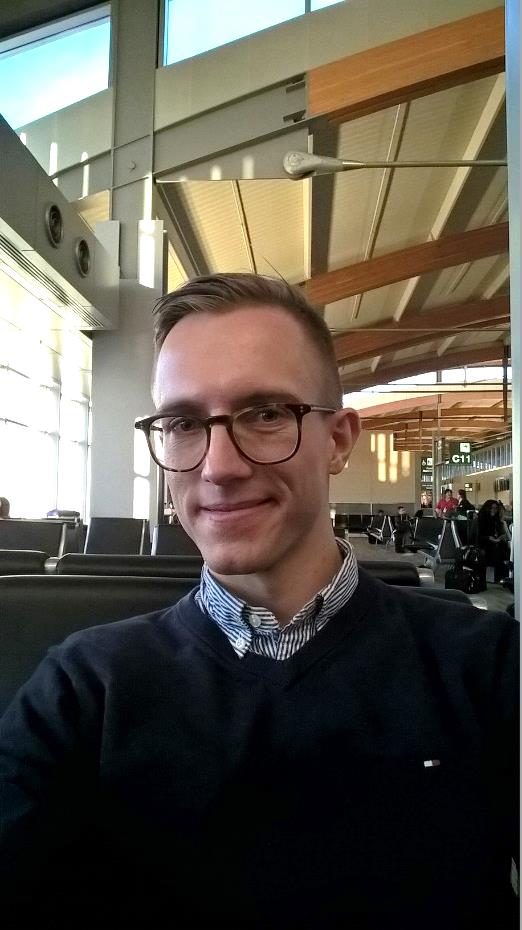
Rok Spruk obtained a PhD in quantative economic history in 2016 from Utrecht University, The Netherlands. He is a research fellow at the University of Ljubljana, School of Economics and Business and is a joined member of Austrian Society for New Institutional Economics, American Economic Association, German Law and Economics Association and European Economic Association. In 2010, he started working at the European Enterprise Institute in Brussels and published two reports. In 2012, he enrolled in a Master program on international economics specializing in the globalization and development track at Utrecht School of Economics and graduated in the same year with a thesis on the augmented Solow growth model with institutions. In the same year, he was employed to prepare the proposal for the PhD in economic and social history under the supervision of prof. dr. Jan Luiten van Zanden. In 2013, he obtained the PhD position at the Department of Economic and Social History in a research project on institutions, growth and long-run development which resulted in this thesis. In 2015, he won Young Scholar Prize at the International Law and Economics conference in Ankara, Turkey for the paper on electoral law enforcement, political institutions and Latin America’s long-run development. His research interests encompass economic growth and development, new institutional economics, applied econometrics, causal inference methods, intellectual property and economic history. At the moment, he has published six high-ranked SSCI publications. His work has been accepted for presentation at several high-profile conferences.
Behavioral Game Theory
Week 2: 10-14 July 2017, 9.00 – 16.00
The intensive course provides an overview of the basic concepts of game theory and how these can or cannot be applied in different decision making contexts. Game theory is a way of formalizing strategic situations. Part of the course is teaching you strategic considerations that can be taken into account when making your choices. Furthermore, game theory can help to predict other peoples’ choices or the behavior of organizations once they are in strategic settings with consequences for your own behavior. Diverse empirical methods will be introduced, concentrating on explanatory experiments and their various outcomes.
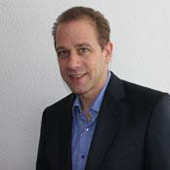
Dr. Philipp E. Otto is specialized in Experimental Economics and Behavioral Game Theory. In 2007 he received his PhD from the University College London (UCL). He supported the LESSAC research team at ESC Dijon on experiments in consumer behavior as well as giving classes in statistics and organization management. Currently he is working for the DFG (German Science Foundation) on a project on threshold public goods at the Microeconomics Department of the Viadrina University in Frankfurt (Oder), Germany. Research interests include, among others, matching markets and price bargaining, social motives and learning, cognitive heuristics and strategy selection. Publications of his appeared in international journals such as the Journal of Socio-Economics, the Journal of Experimental Economics, the Journal of Applied Cognitive Psychology, Economica, and Kyklos.
Empirical Methods for Economic Analysis
Week 2: 10-14 July 2017, 9.00 – 16.00
Participants joining this course will get a glimpse of the contemporary empirical methods used in economic analysis. The selection of methods is designed in a way to address a wide array of data an economic analyst may need in her or his line of work, from micro to macro level data, from cross section thru panel to time series data. Background knowledge of statistics and basic econometrics will help the participants get the most out of this course.
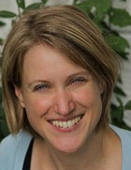
Ulrike Schneider holds a M.Sc. degree in Mathematics from the University of Vienna, a Ph.D. in Applied Mathematics from the University of Colorado at Boulder and her Habilitation in Statistics from the Vienna University of Technology. She is currently an Associate Professor at the Department of Statistics and Mathematical Methods in Economics at the Vienna University of Technology where she teaches courses in econometrics such as panel data methods and microeconometrics. Her research interests involve model selection methods with a focus on Lasso-type estimators. She is interested in statistical theory as well as applications of these methods to economic questions, including finding determinants of economic growth and determinants of retirement decisions.

Martin Wagner is Professor of Econometrics and Statistics in the Faculty of Statistics of the Technical University Dortmund since October 2012. He was educated in Vienna, at the Technical University and the Institute for Advanced Studies, obtaining Diplomas in Mathematics (1995) and Economics (1998), as well as his Doctorate (2000). He obtained his Habilitation in Economics in 2007 at the University of Bern. Martin Wagner has worked at the Technical University of Vienna, the Institute for Advanced Studies in Vienna, the University of Bern and has been Professor of Econometrics and Empirical Economics at the University of Graz before his arrival in Dortmund. Visiting positions have brought him to Princeton University and the European University Institute in Florence. His research interests are econometrics, quantitative economics, transition economics and environmental economics.
Theory Development
Week 3: 17-21 July 2017, 9.00 – 13.00
Participants develop an understanding about developing theory and about its critical role in surfacing a theoretical contribution. They understand the distinction between identifying a business problem and a scientific problem, and the approaches to achieve rigor and relevance. They learn about the key elements of a theory and the approaches to build a theory. They understand the distinctions between process and variance models, how to achieve alignment between theoretical arguments and specifications of variance models, how to leverage context in the theory building process, and about the roles of multi-dimensional constructs and multi-level models in theory development. Cumulatively, they develop the skills and understanding to formulate a research question, synthesize the relevant literatures, build a theory, and specify a model and to achieve correspondence between these essential elements.
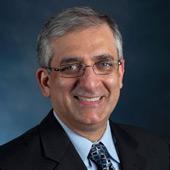
Professor Arun Rai is Regents’ Professor and Harkins Chair in Information Systems at the Robinson College of Business at Georgia State University. He has also held visiting appointments at universities in Germany, France, Hong Kong, and Australia. His expertise is in IT-enabled innovation and business value, and IT-enabled governance of inter-organisational relationships. He co-founded the Robinson College of Business’ Center for Process Innovation to promote industry-university research partnerships. He was appointed Regents’ Professor in 2006 by the Board of Regents of the University System of Georgia for outstanding contributions in research, teaching and service, and he was named a Fellow of the Association for Information Systems in 2010 for outstanding contributions in research, teaching and service to the Information Systems discipline.
Case Study Research: Design, Execution and Publication
Week 3: 17-21 July 2017, 9.00 – 13.00
The course is appropriate to everyone who plans to engage in case-based research during their studies or who wish to master the case-method as part of their broad research skills tool kit. Case research may be employed as the sole method in a PhD thesis or in combination with other methods, such as survey, modelling, simulation, etc. Since the course covers all stages of case research (from design to publication), the course will be of value to students at all stages of their PhD program.
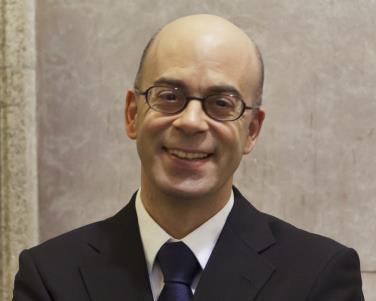
Professor Rui Sousa has received his PhD from the London Business School. His doctoral work – based on case research - has been awarded the 2000/2001 EFQM PhD Thesis Award, an international award given by the European Foundation for Quality Management for the best thesis in Quality Management, recognizing an outstanding contribution to the development of the field and degree of innovation of the findings. His research has won several awards and has been published in leading international journals, including the Journal of Operations Management, Production and Operations Management, Decision Sciences, International Journal of Operations & Production Management and the Journal of Service Research. Rui serves on a number of Editorial Review Boards (e.g., JOM, IJOPM) and has served for six years in the Board of the European Operations Management Association. Rui has extensive experience in conducting case-based research and in teaching the case study methodology to PhD students. He has taught courses and seminars on the case study method internationally, including at the European Institute for Advanced Studies in Management (EDEN Doctoral Seminar in Research Methodology, EIASM, Brussels), Haskayne School of Business (University of Calgary, Canada), University of Exeter (UK), Catholic University of Rio de Janeiro (Brazil), and the Decision Sciences institute Annual Meeting (US). He has taught at the London Business School, London School of Economics and in the major Portuguese Business Schools. His present research interests include service operations, digital economy and operations strategy.
 Case Study Research: Design, Execution and Publication – course content
Case Study Research: Design, Execution and Publication – course content
Qualitative Research & Data Analysis
Week 3: 17-21 July 2017, 9.00 – 13.00
The main purpose of this program is to introduce participants to the challenges and opportunities of Qualitative Research. Participants are expected to understand the link between their research strategy/aims and the use of Qualitative Frameworks as well as understand the basics of Data Analysis by using the software NVivo from QSR International.

Luisa Helena Pinto is a professor of international human resources management and organizational behavior at the FEP-UP, School of Economics at University of Porto. She studied work psychology (Bsc), completed an MBA from ISEE-UP at University of Porto and completed her PhD in Business Administration at University of Minho. Prior to joining FEP-UP, she was affiliated with the Aveiro University/Portugal, where she taught human resources management. She has also an extensive experience as consultant and human resources manager. She has served as global human resources manager at the biggest Portuguese conglomerate, coordinating HR activities across several countries in Europe, Africa and Brazil. Her international professional experience lead for her research interests in international human resources management, expatriation and cross-cultural management.
Innovative Enterprise
Week 2: 10-14 July 2017, 9.00 – 16.00
The purpose of this course is to elaborate and apply “the theory of innovative enterprise” as an approach to analyzing the operation, performance, and regulation of a national economy engaged in global competition. The organization of the course follows the “social conditions of innovative enterprise” (SCIE) framework that prof. Lazonick has developed through the integration of the theory of innovative enterprise with empirical analyses of the process of economic development.

William Lazonick is a professor of economics at the University of Massachusetts Lowell. He is president and co-founder of The Academic-Industry Research Network, a non-profit research organization. His most recent research has been funded by the Institute for New Economic Thinking, Ford Foundation, European Commission, and Korea Economic Research Institute. Currently he occupies visiting positions at the University of Ljubljana, Telecom School of Management in Paris, and the University of London.
Professor Lazonick is the author of six books, including Sustainable Prosperity in the New Economy? Business Organization and High-Tech Employment in the United States (Upjohn Institute for Employment Research 2009), which was awarded the 2010 Schumpeter Prize by the International Schumpeter Society. He has also edited eight books and published about 150 articles. In September 2014, his article “Profits Without Prosperity: Stock Buybacks Manipulate the Market and Leave Most Americans Worse Off” appeared in the Big Idea section of Harvard Business Review, and subsequently received the HBR McKinsey Award for outstanding article in the magazine in 2014. Lazonick is currently writing a book, The Theory of Innovative Enterprise, to be published by Oxford University Press.
Having participated in the DSS three consecutive years I am truly able to say: the program organization is excellent, the lectures are very well designed and challenging, and the people, the food and the city are just amazing!
Carolin, Heilbronn University, Germany
Participating in the Ljubljana Doctoral Summer School has been an enriching experience for my academic and personal development. Besides the beautiful city the intensive course work and also the network opportunities with like-minded PhD students from different countries have been very valuable.
Johannes, University of Antwerp, Belgium
Ljubljana Doctoral Summer School gave me a lot - an opportunity to meet the highest level professors, understand the most complex theories in the simplest way, spend time and share ideas with motivated and science passionate colleagues and, of course, get to know with Slovenia's beautiful nature.
Meda, Kaunas University of Technology, LithuaniaI really enjoyed the Ljubljana Doctoral Summer School. Being enrolled in an excellent class on structural equation modelling with PhD from all over Europe did not only enhance my professional skills but also gave me the opportunity for interesting discussions about different cultures and PhD life in general.
Liliane, ETH Zurich, Switzerland
Ljubljana Doctoral Summer School was an unforgettable experience: from the city of Ljubljana itself, the weather, the people, the food, the delivery of the course to interactions with other doctoral students. As an external PhD student, I loved the intensity of the academic program, and valued the meetings with fellow students and lecturers to discuss our research projects and expand networks. The number of students per class was deliberately kept small, thus ensuring closer student-student and student-lecturer interaction. The diverse backgrounds and wide research interests of the students also enriched class discussions immensely. Did I mention the social events too?
Innocent, Wageningen University, The Netherlands
The Ljubljana Doctoral Summer School was well organized. I am happy that I joined the useful and insightful courses in Ljubljana.
Yi, University of Graz, Austria
I enjoyed Ljubljana Doctoral Summer School experience for many reasons. I attended to course Experimental Design in Social Sciences. Dynamic of work and quality of syllabus is outstanding. Professor was approachable and very communicative, with excellent communication skills. This course was very useful because I used experimental method in preparation my PhD thesis, so this course helped me a lot in understanding this methodology.
I met PhD students from all over the world and we are through teamwork pleasantly spent time. Of course, pleasantly time is continued through social programme (Ljubljana sightseeing and weekend trip around Slovenia). So, I recommend to all PhD students around the world who want to gain new scientific knowledge, to meet a variety of scientific methods and topics, to spend a pleasant time and get to know students from all over the world to come to Ljubljana Doctoral Summer School.
Marko, University of Split, Faculty of Economics, Croatia
Ljubljana Doctoral Summer School is a great program and experience for all Ph.D. candidates. It is intensive and time efficient. Lecturers were selected carefully and I learnt new things from their real life experience and knowledge during the course. We worked with colleagues from all over the world. It is also a good chance to discover Slovenia. There are several social events you can attend. I definitely recommend all Ph.D. candidates to join Ljubljana Doctoral Summer School.
Ahmet, University of Pécs, Hungary










